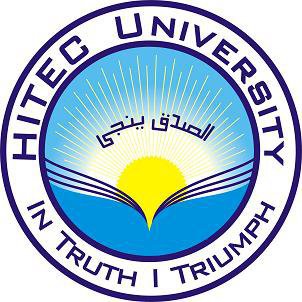
Taxila or Takshashila is a city in the Pothohar region of Punjab, Pakistan. Located in the Taxila Tehsil of Rawalpindi District, it lies approximately 25 kilometres (16 mi) northwest of the Islamabad–Rawalpindi metropolitan area and is just south of the Haripur District of Khyber Pakhtunkhwa.
A millwright is a craftsman or skilled tradesman who installs, dismantles, maintains, repairs, reassembles, and moves machinery in factories, power plants, and construction sites.

A mechanic is a skilled tradesperson who uses tools to build, maintain, or repair machinery, especially cars.

Bharat Heavy Electricals Limited (BHEL) is an Indian central public sector undertaking and the largest government-owned power generation equipment manufacturer. It is owned by the Government of India, with administrative control by the Ministry of Heavy Industries. Established in 1956 with the help of Soviet technology, BHEL is based in New Delhi.

Industrial wastewater treatment describes the processes used for treating wastewater that is produced by industries as an undesirable by-product. After treatment, the treated industrial wastewater may be reused or released to a sanitary sewer or to a surface water in the environment. Some industrial facilities generate wastewater that can be treated in sewage treatment plants. Most industrial processes, such as petroleum refineries, chemical and petrochemical plants have their own specialized facilities to treat their wastewaters so that the pollutant concentrations in the treated wastewater comply with the regulations regarding disposal of wastewaters into sewers or into rivers, lakes or oceans. This applies to industries that generate wastewater with high concentrations of organic matter, toxic pollutants or nutrients such as ammonia. Some industries install a pre-treatment system to remove some pollutants, and then discharge the partially treated wastewater to the municipal sewer system.

A chemical plant is an industrial process plant that manufactures chemicals, usually on a large scale. The general objective of a chemical plant is to create new material wealth via the chemical or biological transformation and or separation of materials. Chemical plants use specialized equipment, units, and technology in the manufacturing process. Other kinds of plants, such as polymer, pharmaceutical, food, and some beverage production facilities, power plants, oil refineries or other refineries, natural gas processing and biochemical plants, water and wastewater treatment, and pollution control equipment use many technologies that have similarities to chemical plant technology such as fluid systems and chemical reactor systems. Some would consider an oil refinery or a pharmaceutical or polymer manufacturer to be effectively a chemical plant.
A Piping and Instrumentation Diagram is a detailed diagram in the process industry which shows process equipment together with the instrumentation and control devices. It is also called as mechanical flow diagram (MFD).

Machine Sazi Arak (MSA) is an Iranian industrial machinery and equipment manufacturing corporation that was established in 1967 in an area of 134 hectares in the city of Arak in order to support underlying industries and meet the industrial needs of the country.

The University of Engineering and Technology, Taxila is a public university located in Taxila, Punjab, Pakistan. It was established in 1975 as a campus of the University of Engineering and Technology, Lahore and chartered as an independent university in 1993. It offers bachelor's, master's and doctoral degrees in engineering and applied sciences. University of Engineering and Technology, Taxila is officially recognized by the Higher Education Commission of Pakistan.

The Al-Khalid/VT-1A is a main battle tank family developed jointly by Norinco of China and Heavy Industries Taxila of Pakistan. The tank is based on the Type 90-II tank. Around 310 Al-Khalid MBTs had been produced by 2014. The tank has been exported to Bangladesh, Morocco and Myanmar by China. The VT-1A is also known as MBT-2000.

The Dr. A. Q. Khan Research Laboratories, is a federally funded research and development laboratory located in Kahuta at a short distance from Rawalpindi in Punjab, Pakistan. Established in 1976, the laboratory is best known for its central role in Pakistan's nuclear weapons program and its understanding the nuclear science.
The Defence Industry of Pakistan, established in September 1951, mainly falls under the purview of the Ministry of Defence Production (MoDP). It aims to foster collaboration and oversee the diverse range of military production facilities that have emerged since Pakistan's independence. The MoDP comprises specialized organizations, each dedicated to various aspects of the defence industry, including research and development, production, and administration.
The Mohafiz is a family of internal security vehicles designed and manufactured by Heavy Industries Taxila with Cavalier Group also designing later production models.
Lieutenant-General Talat MasoodHI(M) SBt is a retired three-star rank army general, a political commentator, and a mechanical engineer.

The Ministry of Defence Production abbreviated as MoDP, is an executive ministry of the federal Government of Pakistan with objectives of development and production of ordnance and machinery for the Pakistan Armed Forces.

Project commissioning is the process of ensuring that all systems and components of a building or industrial plant are designed, installed, tested, operated, and maintained according to the owner's or final client's operational requirements. A commissioning process may be applied not only to new projects but also to existing units and systems subject to expansion, renovation or revamping.

HITEC University is a private university located in Taxila Cantonment, Punjab, Pakistan.
Burraq is a Mine-Resistant Ambush Protected (MRAP) Vehicle currently being developed by Heavy Industries Taxila (HIT) of Pakistan. It is a 4x4 Protected vehicle based on the chassis of the Isuzu NPS-75 commercial truck so as to reduce the cost and facilitate the delivery of spare parts. In appearance, the Burraq is quite similar to the Wildcat MRAP, developed by the Israel Military Industries (IMI).

The Taean Machine Complex is machinery factory in Taean-dong, Taean-guyŏk, Namp'o Special City, North Korea producing a wide array of electric machinery for industrial and household use.

Global Industrial & Defence Solutions (GIDS) is a Pakistani state-owned defence conglomerate, and the country's largest defence manufacturer, offering products for military applications. GIDS has exported to 16+ countries and is currently under engagement with 30+ countries across the globe.















